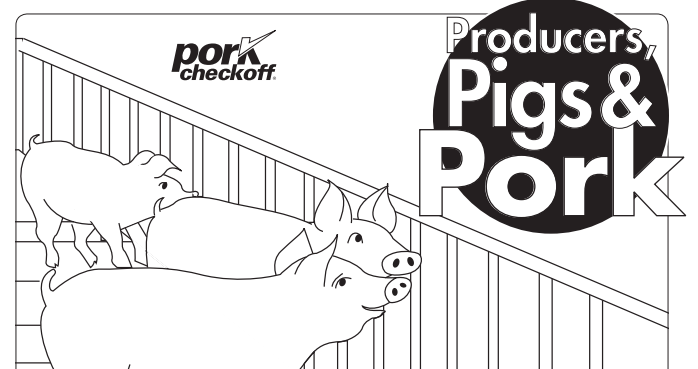Back in 2018, MCE wrote an open letter to the University of Missouri Extension in response to a series of pro-concentrated animal feeding operation (CAFO) video cartoons published with undisclosed funding from the National Pork Board. These videos were full of false claims that raising hogs in confinement is better for the environment, beneficial to animal health, and produces safer, more wholesome food — what a load of hog manure.
The pro-CAFO video cartoons are no longer on the University of Missouri Extension webpage, but we’ve been disappointed to uncover more greenwashing of confined animal production from the National Pork Board, including materials for kids. In the Pork4Kids storybook* below, friendly Dr. Sarah guides young Billy on a tour of his local hog producer’s CAFO. Dr. Sarah shares how pigs “stay clean” on concrete floors, mothers sows are “safe” in gestation crates, and pigs fatten up over the course of a short five months on “nutritious” corn and soy feed — all of these images soften and idealize a production system that looks a lot more like a factory than a farm.
With the size of operations scaling up and the number of hog farms in Missouri decreasing, most hog production today looks very different than it did 100 years ago. Raising livestock in confinement is NOT a pretty picture. Depicting CAFOs as local family farms is a devious way to hide the truth of the destructive impacts of factory farming on our environment, on our health and on small, independent farm economies.
It’s important that the next generation learns the truth that CAFOs are not the best nor the only way to “feed the world.” Smaller-scale, environmentally-responsible farms produce wholesome, nutritious food that sustains communities. We invite you to flip through the storybook and read our responses to where the National Pork Board claims that “safe, healthy, and delicious food” comes from.
https://moenvironment.org/wp-content/uploads/2021/10/Producers-Pigs-and-Pork-Pork-Checkoff-Coloring-Book-2.pdf
Are you a parent, educator or farmer? Please send us your reactions and let us know why honest agricultural education in Missouri is important to you. Email MCE’s Policy Coordinator, Sophie Watterson, at swatterson@moenvironment.org.
*Please note this resource was published in 2009.

